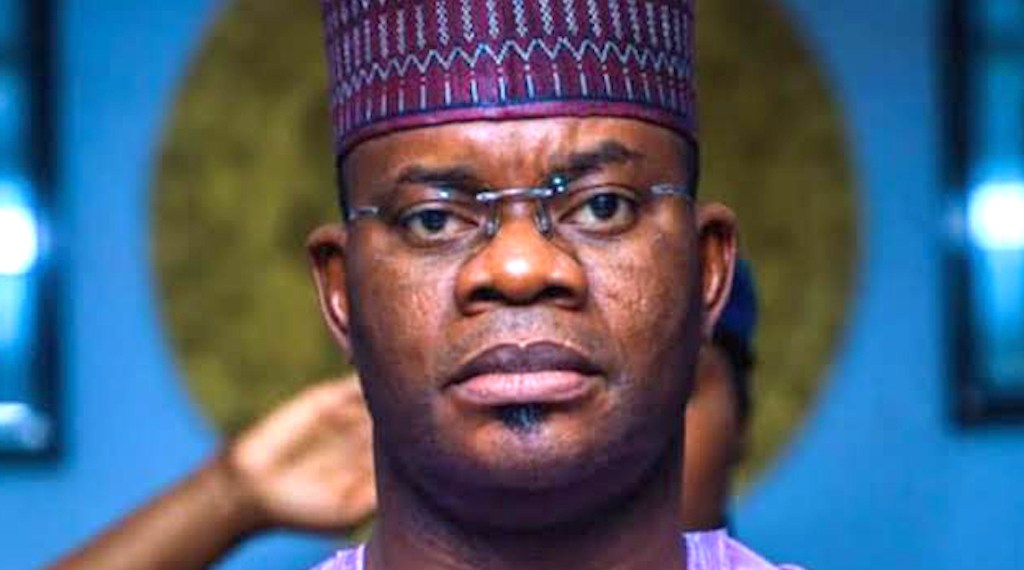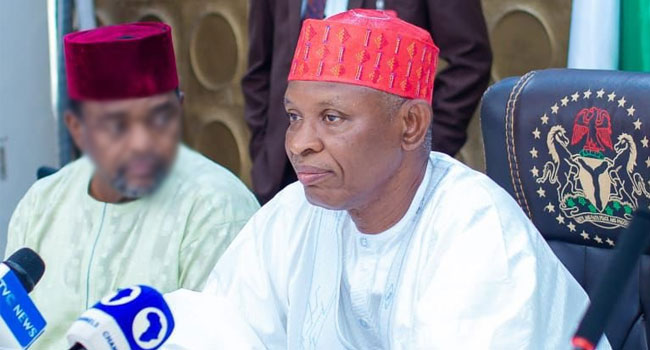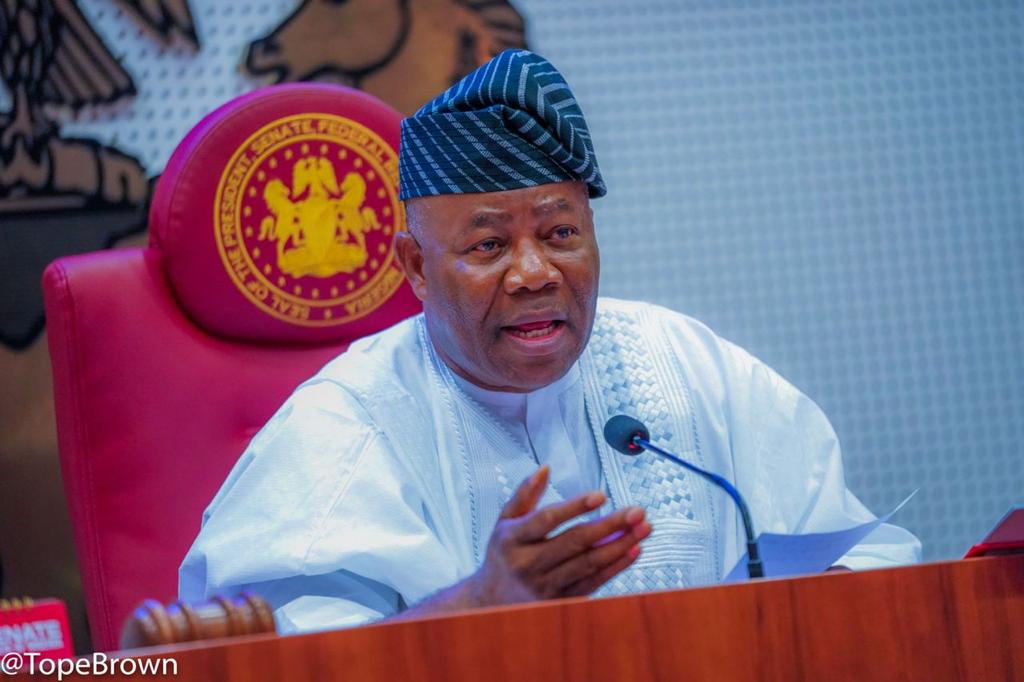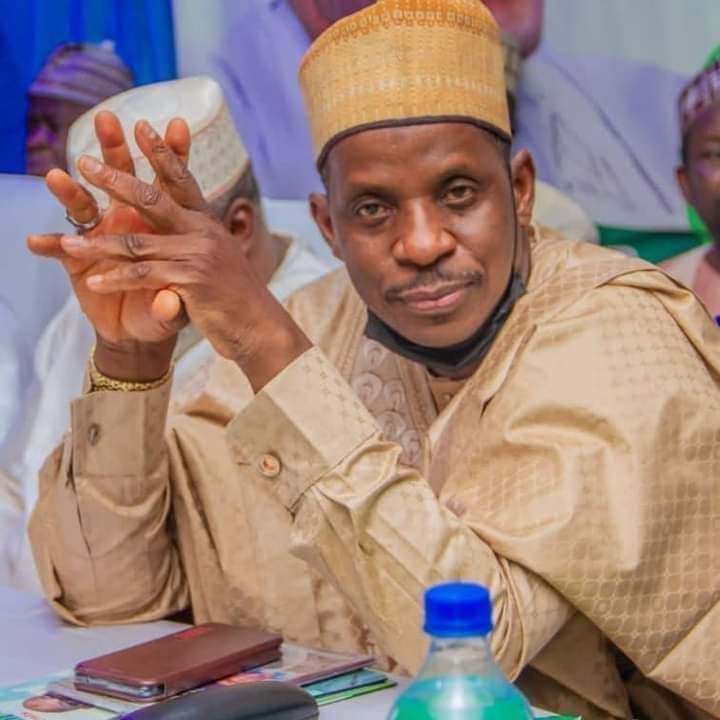Prof Toyin Falola is currently the Jacob and Frances Sanger Mossiker Chair in the Humanities at the University of Texas at Austin, USA. Before relocating abroad, he taught at the University of Ife, Ile-Ife (now Obafemi Awolowo University). In this interview with Olayinka Oyegbile he proffers solution to the crisis at the University of Lagos.
What do you think is the cause of the crisis in UNILAG?
There are reasons given in the official statements of the parties involved to the press and members of the general public, and there is another underlying reason that is mentioned in the shoddy and clandestine manner in which the substantive Vice-Chancellor, Professor Toyin Ogundipe, was removed and humiliated. This insinuation assumes substantiality when juxtaposed with the knowledge that there is no love lost between the Pro-chancellor and the Vice-chancellor since 2017. When did things go wrong between the Pro-Chancellor and Vice-Chancellor? However, though this knowledge of the pre-existing face-off between the embattled parties—which is unrelated to the current allegations of financial misconduct—has served to provide perspective on the issue, the sanctioned reason for the crisis is that, in pursuance of the legally recognized duties of his office, the now-suspended Dr. Wale Babalakin (SAN), violated due process in ousting the Vice-Chancellor, casting serious doubts as to the objectivity of his actions and the purity of his motives. In other words, he went beyond the sanctioned powers of his office to prosecute a case in a manner that suggests a personal vendetta. The university community and other well-meaning Nigerians strongly protested what they saw as an injustice, especially of an institution with such pedigree, and for what it means for university autonomy as vested in the university senate.
Do you think the chairman of the council (Dr. Babalakin) overstepped his brief by suspending and appointing an acting VC?
Yes, I do, on two grounds. First, if he claims to have extensive evidence of corruption against the Vice-Chancellor, why did he not set up an investigation committee, following established guidelines, to work on the Auditor’s report and widen the probe. Second, personal convictions aside, for the understandable reason that Dr. Babalakin disregarded the constitutionally provided rules and guidelines for the ‘Appointment and Removal of a Vice-Chancellor under the Nigerian Law’ as contained in the University’s establishment Act and the Universities (Miscellaneous Provisions) Act No.11, 1993, as amended by (Amendment) Act, 2003 otherwise called the ‘‘Universities Autonomy’’ Act, he stands accused of bad judgement. I believe that such issues which have the potential of ruining the reputation of a time-honored academic and that of a prestigious institution such as the University of Lagos should be handled with the utmost transparency and in strict adherence to the provisions of the law. That is the ideal way to go. This is the reason why many people, including myself, called for the creation of a new Governing Council to give the University of Lagos a fresh start.
How would you describe ASUU’s intervention in the UNILAG crisis?
ASUU has remained one of the most influential unions in Nigeria, even though it is yet to muster its full power in its engagements with issues of governance on campuses. That said, the union’s intervention in the unfortunate development in UNILAG has proven to be in order. ASUU serves as the conscience of the institution, as elsewhere. And since the conscience of the institution has risen in support of the noble faction in the crisis, it strengthens the credibility of the union. The union has shown that the University community is mostly one, but for some “intruders.” This also shows how ill-conceived the Pro-Chancellor’s position on the issue has been. For one, it would have been easier to dismiss Professor Ogundipe with the support of ASUU, if the allegations of corruption are established. You must remember that ASUU had previously reported two corrupt Vice-Chancellors in other Universities to the federal government. The Visitation Panel must compel ASUU to come before it to explain why it has to use verbal violence to prevent the Council of the University from meeting on campus.
Kindly say something about the manner the UNILAG governing council handled the crisis, the sudden sack of Prof Ogundipe, and the appointment of Prof Soyombo without the Senate’s approval.
The crisis is symptomatic of the general political culture in Nigeria. Power, to some of these political appointees, is personal and should be used to fester one’s ego and settle scores. I was told of one Pro-Chancellor in another university who decided to live permanently on campus. I heard of another in yet another university who wanted to chair the Tender’s Board. There is the story of yet another on another campus who was asking for his share of the University’s budget. Again, on another campus, a Pro-Chancellor was alleged to have proposed buying parts of the University land for private development.
In this case of UNILAG, the Pro-Chancellor is a lawyer, a senior one for that matter, but he made some statements that are upsetting. He was hell-bent on humiliating the Vice-Chancellor to justify his removal from office. The Pro-Chancellor called respected members of Senate casual members of a debating society. He referred to teachers in the Faculty of Law as armchair lawyers. He described as no more than “opinion” the legal interpretations of the law by some university members. Why work in a place if you won’t respect its members? All the actions taken by the Pro-Chancellor speaks to the Yoruba proverb of the vengeance of breaking the eggs of a fowl who accidentally spills your herbal concoction. In politics, what matters the most is perception. To some members of the University community, Dr. Babalakin comes across as arrogant and difficult to work with.
So, how should the issue be resolved?
To resolve the crisis, we must understand both its root and immediate causes. Is it about money, the corruption that has permeated all of our institutions? Corruption destroys. Is it about power? If power is not well distributed, it will generate powerlessness? Is it about a fight over resources? If so, who awards contracts to his friends and allies? Or could it be about personality choices? In that case, does it mean that Dr. Babalakin is not a good fit for such a job or that Vice-Chancellor Ogundipe wants to dance with a snake without an antidote? Is it a chemistry issue, in which case some individuals cannot just work together? Or is it the case of polygamy that generates jealousy and should have immediately led to a divorce. To the Pro-Chancellor, the Vice-Chancellor is incompetent. Could this be true? If the Visitation Panel fails to understand the causes, a bigger crisis awaits in the future. When does the rain begin to beat the University of Lagos, and they could not procure an umbrella?
The current imbroglio at the University of Lagos is far from a simple case of misunderstanding as a distant observer might perceive it to be. To anyone who has kept abreast of the chronology of events as they unfolded, it is apparent that certain individuals overstepped the purview of their offices and arrogated unto themselves powers that border on the dictatorial. The Visitation Panel should pay particular attention to the role of all the insiders, the management in particular, and the outsiders, especially the members of the Governing Council, in providing the enabling conditions for the crisis to begin and later to escalate.
In moving forward, I recommend six immediate plans of action:
- In the first place, only the evidence of theft could justify the removal of Professor Ogundipe. To me, this is where the road to justice in the matter should commence. Was he as corrupt as Dr. Babalakin portrays him? If yes, a separate investigation must be conducted. If not, an apology is necessary, and Dr. Babalakin must retract his statements. A professor in UNILAG has already filed a petition to the EFCC to investigate the Vice-Chancellor. I doubt it will be different if other universities are run differently from UNILAG. Thus, this case has opened up an opportunity for the country to visit all other campuses and examine the nature of the practices to see whether all our universities are products of the same decadence.
- Second, the institutions of governance must be respected, especially the role of the Senate. The Visitation Panel should pay attention to the ways and manners in which established procedures and protocols have been ignored.
- Third, the Governing Council has to be dissolved and reconstituted. The University of Lagos has been so severely divided that the current Pro-Chancellor already has his “enemies” and “friends,” making it difficult for him to function. There are now severe internal fights among the Council members, with six of them refusing to attend the meeting where the appointment of the Acting Vice-Chancellor was approved. To give peace a chance, Dr. Babalakin can be allocated a new role in another federal establishment.
- Fourth, a review of all the regulations on University finances should be conducted, and all contracts and significant expenses should become transparent. A group of competent auditors should be hired to examine the accounts of the University to create transparency. UNILAG should not run as a center of corruption.
- Fifth, the welfare of students should take priority. Without the students, there can be no university. Representatives of the students have offered their voice to oppose what they call the “Ogundipe’s wing” and the “Babalakin’s wing,” seeing both as fighting for control of resources.
- Six, swift and efficient response to issues concerning sectors that are very critical to national development, such as education, must always be taken before things get out of control. This brings up the issue of the lingering ASUU strike, which continues to engender distrust in the nation’s educational system, especially at the tertiary level. Together, these issues speak to the need for proactive measures to be put in place to avert such occurrences or, in the worst scenario, a better response to them to avoid their festering and causing permanent damages. In this respect, all parties involved, from the university management, national education body to the national leadership, must wake up to their responsibilities. The perennial instances of strikes that shut down the nation’s public tertiary institutions must end.
Should Professor Ogundipe end his term?
I’m not his lawyer, but left to me, he has to manage the issue with concerns to his battered reputation and not as a way to regain his office. The question of ending his term cannot arise now until we see the report of the Visitation Panel. I learned he’d instructed his lawyer to withdraw the case challenging his removal at the Industrial Court in Lagos, following the Visitor’s intervention. This is a sign of a willingness to support the government’s initiative at bringing an end to the whole drama. For now, Professor Ogundipe can only wait to see the end of the process. If, after the entire process, his term has to end, so be it. But as it is now, this is beyond him as it has become an institutional matter. Professor Ogundipe should not even be preoccupied with returning to his seat but clearing his name.
As I write, I am not sure whether the Pro-Chancellor is confusing the exercise of executive privileges with theft and corruption. We have been told of the staggering amounts of contracts awarded, but this does not mean that the money ends in the Vice-Chancellor’s pocket. Many other Vice-Chancellors have renovated their houses and acquired new furniture. Some are allowed to retire with their cars and take excellent leave with generous benefits. I am not sure of what the Pro-Chancellor did to correct the system, and it remains unclear to me how the removal of Professor Ogundipe will reform the contract system in UNILAG.
The stories reaching us via the TV and grapevine sound like a beautiful moonlight treat and a fascinating metaphor. Very delicious indeed, like eating new yam with palm oil! In the moonlight story, I see the intricate connections between the school teacher’s expenses on the renovations of his lodge and the headmaster’s juicy contracts on the Lagos-Ibadan dual carriageway and the facelift to the Murtala Mohammed Airport. We should be allowed to inspect what the forty million naira accomplished even if it can also give us a wholly new house for the Baba Alajo, instead of a renovated one for the left-out envious Akowe, alagba esikuya. When a billionaire contractor begins to turn “stolen” peanuts into a walai wahala, it is time for me to leave Lagos and move to the NDDC for the gangan and gbogboe of this real matter! My preference in this true story is for the contracts outside of campus! I am competent to supply lagoon water to UNILAG. I don’t know about you o jare, learned professors and fellow citizens, but I don’t want the Akoka renovations but the Lagos-Ibadan road. I can manage the airport sa. If you’re going to eat a frog, look for the one with eggs to make your egusi!
As to the metaphor, it is a delightful one on the tale of the rivalry between a pickpocket and an armed robber. The pickpocket was accused of stealing money, but the armed robber wanted to seize the vault. One carries a knife and the other a gun. Ole j’ole lo! It’s a classic case of a pot calling a kettle black. Do you want to be a dead man or a mad man? A mad man sees a dead man and kneels to thank God that, at least, he can still be taken to Yaba or Aro for a cure. In this delicious awada kerikeri, the outgunned VC is the dead man, and I don’t know who the madmen are among the remaining actors. Lobatan!
What do you think about appointing another Vice-Chancellor at this time?
The recent appointment of Professor Ogunsola as the Acting Vice-Chancellor of the University is a unique twist to the whole drama as she too has been rubbished by the suspended Pro-Chancellor. Being a woman with experience and longtime relationships with members of the Senate and Council of the University, her expertise is expected to bring calm and restore a certain level of order in the interim. Meanwhile, we await the report of the Visitation Panel. If Professor Ogundipe is not found guilty of corruption, a decision has to be made to affirm his dignity and ask the Senate of the University as to the best course of action to restore sanity. I think the crisis of UNILAG is now more significant than the question of who becomes the Vice-Chancellor.
Where does the issue of academic autonomy stand in this?
It is for the reason of justice, accountability, peace, and progress that autonomies are established in institutions of public administration to serve as checks and balances to high-handedness and abuse of power. Public officials have also been known to attempt and sometimes (more commonly than is good for the country’s progress) successfully contravene these provisions in pursuance of their aggrandizement. Fortunately, for most such instances, there are those whose voices have braved the consequences to speak up in protest, or I daresay, we might not have a Nigeria anymore. This appears to be the situation at the University of Lagos in the last couple of weeks.
From the appearance of the ongoing regarding the removal of the substantive and the appointment of an acting Vice-Chancellor, and especially the significance of that fateful and crucial meeting held at Abuja, it appears that Management and Council have reached a dead end. The idea of members of academia being engrossed in internal discord or joining forces with political actors to disrupt the University not only speaks poorly of the integrity of professors as a basis for autonomy but also invites further affront and interference. The university as an instrument for social change and advancement should ensure that it is not a theatre for the contest of egos.
There have been arguments that a VC doesn’t have to be an academic, do you agree and share with us the American model?
Mind you, Nigeria inherited a British system of education, just like it did other aspects of its public institutions. Unlike in Britain and other commonwealth countries where the educational system provides for a titular chancellor who is usually a prominent social figure and serves only ceremonial purposes, and a vice-chancellor who is traditionally an academic who serves as chief executive officer, the title for the head of a university in America is ‘president’ or ‘rector.’ Where the university system has more than one affiliated campus or university, the executive heads of the subsidiary campuses report to the overall system’s Chancellor, who is not necessarily an academic. The Vice-Chancellor (President) is the chief executive of a university.
Traditionally, the position of many Vice-Chancellors (Presidents in the case of the US) is reserved for academics as the situation requires at least a Ph.D. in the candidate’s chosen academic discipline, an outstanding record of scholarship, and an extensive teaching and managerial experience. Recently, the position of University Chancellor has increasingly been non-traditional, with career bureaucrats from the army, civil service, and financial institutions clinching the office. However, the more significant percentage by at least 2:1 still follows the traditional mode of choosing from the rank of professors, as faculties prefer being led by one of their own because they fancy someone who appreciates the culture and norms of academia and is interested in the pursuit of knowledge.
Chief Simeon Adebo, a public servant, almost became the Vice-Chancellor of the University of Ibadan but for a UN appointment. This could have initiated some necessary changes. Several Nigerian private universities are now being run by their owners, although the titular heads are professors appointed as Vice-Chancellors. I think the change will most likely come with the private universities where the decision-making process is less politicized.

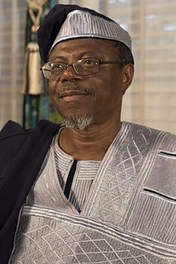
 Dr. Babalakin
Dr. Babalakin


